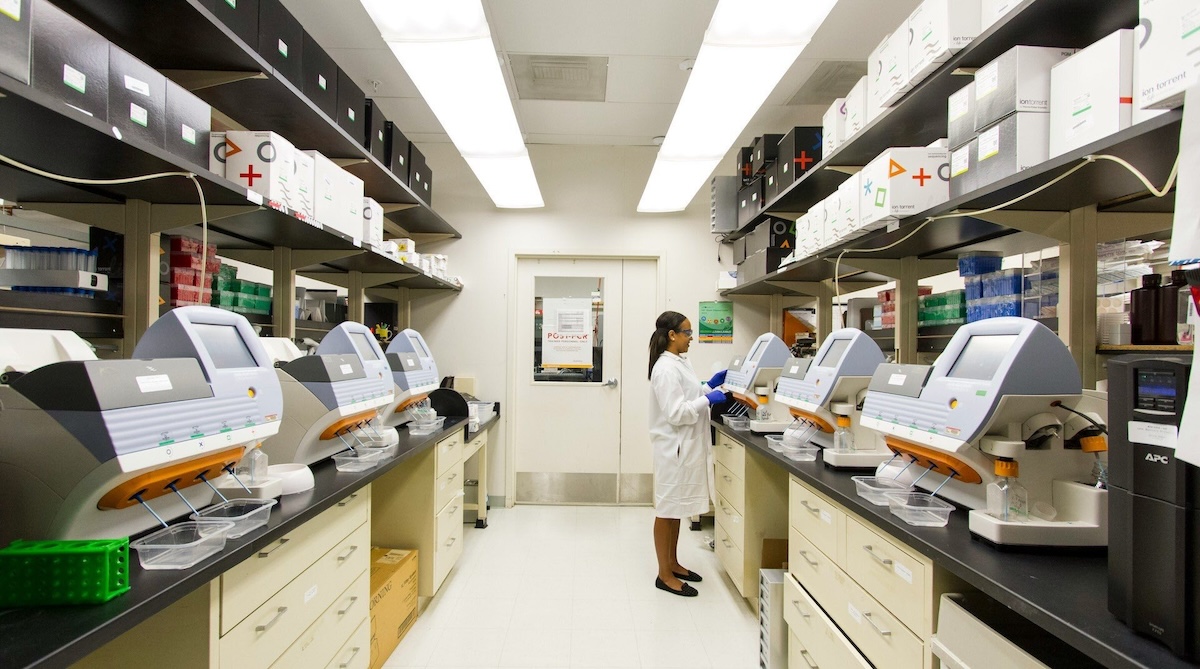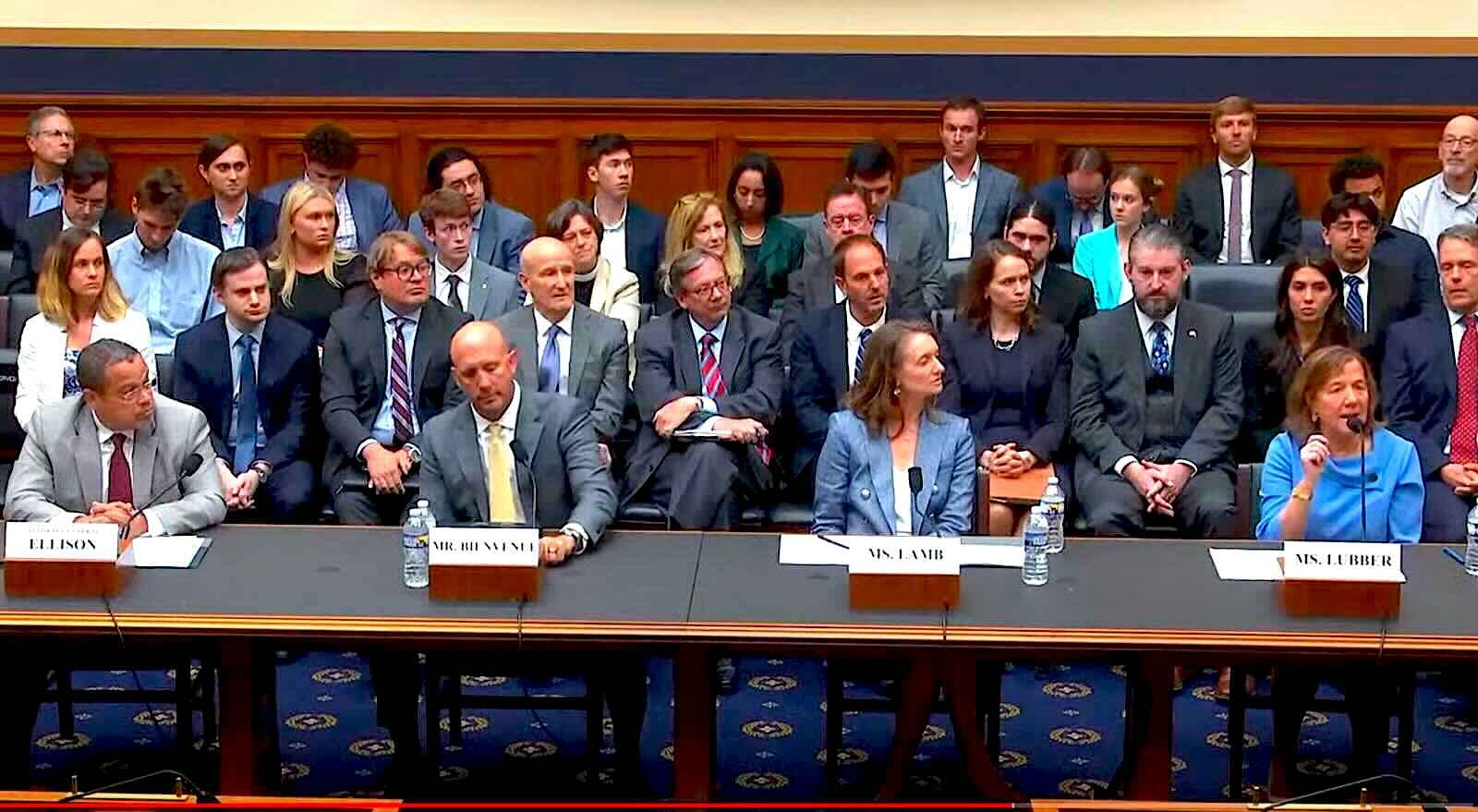Greetings Agents of Impact!
In today’s Brief:
- Ava DuVernay’s impact in filmmaking
- Commercializing impact accounting
- Recovering energy transition minerals
- Estimating the carbon-reduction potential of new technologies
Featured: Impact Stories
With Array, Ava DuVernay is building influence and infrastructure to drive impact through film (video). Filmmaker Ava DuVernay could script in advance the reaction she’d get from Hollywood studio executives to a pitch for her film about caste, the power dynamic underlying racism in America and other forms of domination. “Big record scratch and everybody walks out of the room,” she imagined. “It’s not the hot topic.” Instead, she put together a blended structure of philanthropic financing that let her move quickly and without compromise to make “Origin,” her critically acclaimed movie based on journalist Isabel Wilkerson’s 2020 book, “Caste: The Origin of Our Discontents.” Without that $35 million package, “I don’t believe the film would be in the world right now,” DuVernay told ImpactAlpha in a joint video interview with the Ford Foundation’s Roy Swan at last month’s Mission Investors Exchange conference in Los Angeles. “If for some reason some studio did agree to it, it would not be the same version that you see.” (Disclosure: Ford Foundation is an investor in ImpactAlpha.)
- Narrative change collective. DuVernay has produced most of her films and series through Array, the “social impact collective dedicated to narrative change” that she created in 2011 to amplify voices of color and women in Hollywood. The company now includes Array Releasing, a distribution arm; Array Filmworks, a production house; and Array Campus, a four-building creative space in the Historic Filipinotown district of Los Angeles.“We’re now a healthy, thriving nonprofit that is looking to disrupt the systems that ensnare and keep content with purpose in a bottleneck in Hollywood,” DuVernay said. “I said, ‘Look, I can’t force Hollywood to care about this. Why don’t we make it outside of Hollywood in a different way and reach audiences differently?’ And that’s what we’re working on.”
- Blended finance. Ford Foundation invested a total of $10 million in “Origin,” its first direct investment in a commercial, for-profit film. Emerson Collective, the philanthropic investment firm of Laurene Powell Jobs, followed with both a grant and an investment. Then came Pivotal Ventures, founded by Melinda French Gates, which chose to make a grant, as did the MacArthur Foundation. Other investors included NBA star Chris Paul, whose own production company, Ohh Dip!!! Productions, seeks out stories that go beyond entertainment. “Ava and Array understand that having more women and people of color in front of the camera, behind the camera, and in other key positions will result in stories that resonate with a broader swathe of people,” Pivotal’s Nicole Gates said in a Harvard Business School case study.
- Pivotal moment. DuVernay’s and Array’s success in creating a structure for philanthropic investors comes at a pivotal moment for social-impact films, particularly those made by Black and female filmmakers. Last month, billionaire Jeff Skoll abruptly shuttered Participant, the largest dedicated producer of social-change films in Hollywood. The decision opens the door for others to step into the space “and make it even bigger,” DuVernay said. “We feel that the model that we have been incubating and that we practiced for the first time with ‘Origin’ is one that will grow, will blossom and will hopefully be an example to others.”
- Keep reading, “With Array, Ava DuVernay is building influence and infrastructure to drive impact through film,” by David Bank and Dennis Price on ImpactAlpha. Watch the video interview.
Dealflow: Impact Spinoffs
Richmond Global Sciences raises $2 million to scale impact accounting. Researchers at Harvard spent a decade developing a unified accounting system for impact to guide investor and corporate decision-making. The leader of that “impact weighted accounts” initiative, George Serafeim, is turning the framework into an AI-assisted, off-the-shelf software product to quantify the social and environmental impacts and externalities for thousands of companies. London-based Richmond Global Sciences, cofounded by Serafeim, Sakis Kotsantonis and Peter Kellner, raised $2 million from Metavallon VC and the Ford Foundation to launch its impact accounting platform.
- Target audience. Family offices and private equity investors are looking to quantify and compare the impacts of their portfolio companies and identify potential investees. RGS RIFT leverages a library of outcome-based data, social costs and scientific research to put financial values on the positive and negative impacts of companies on their employees, customers and the environment. “Impact weighted financial accounts is the infrastructure that we need for capital markets that are driven by sustainability considerations,” Kotsantonis told ImpactAlpha. RGS, he says, “brings the data to enable this infrastructure.”
- Time to scale. Harvard’s impact weighted accounts effort was spun out in 2022 to the International Foundation for Valuing Impacts. “Formerly opaque costs associated with negative and positive externalities will soon be quantified in currency terms,” said Ford Foundation’s Roy Swan. RGS plans to leverage its data to develop additional products to help investors identify high-potential companies within a theme, and to calculate climate impacts for asset-backed securities. An earlier startup cofounded by Sergei and Kotsantonis, the ESG consultancy KKS Advisors, was acquired in 2021 by DuPont Sustainable Solutions.
- More.
MIT-spinoff SiTration snags $11.8 million to recover critical metals from mining waste. Jeffrey Grossman, a materials science and engineering professor at MIT, and his associate Brendan Smith came up with their silicon membrane technology from their research on desalination. Silicon membranes, it turns out, are an efficient way to cull mining and waste streams for minerals such as lithium, cobalt, nickel and copper needed for wind turbines, green batteries and other clean energy technologies. The patented technology “can create a cleaner, more equitable, and more profitable critical materials supply chain across multiple industries,” said Smith. The company is starting out with lithium-ion battery recycling and mining to replace more resource-intensive processes.
- Commercialization. SiTration’s seed round was led by UK-based climate tech investor 2150, with participation from Azolla Ventures, MIT-affiliated E14 Fund, BPH Ventures and other investors. “The need for breakthrough technology that addresses the staggering shortage of critical metals the world is facing as we transition to a clean, electrified energy system is real,” said 2150’s Jacob Bro. SiTration secured its first commercial partnership with Rio Tinto, one of the world’s largest metals and mining corporations, to recover critical metals from liquid waste streams.
- Check it out.
Dealflow overflow. Investment news crossing our desks:
- Nexus PMG, a low-carbon infrastructure investor, backed Kansas-based Saola Energy to help owners and operators of large renewable fuels plants reduce their carbon intensity. (Nexus)
- EnerVenue, which is building nickel-hydrogen batteries as an alternative to lithium-ion, raised $308 million in a new equity round. (TechCrunch)
- Fibe (formerly known as EarlySalary) raised $90 million from TPG Rise Fund, Trifecta Capital, Amara Partners and other investors to expand its lending in India. (Fibe)
- UK-based Qargo, which provides low-carbon transport management services to European logistics companies, scored £11 million ($14 million) in a round led by Balderton Capital. (TFN)
Signals: Impact Management
Prime Coalition updates CRANE to project emission reductions from new technologies. Investors looking for solutions that reduce greenhouse gas emissions face a dilemma: What is the best use of their limited capital? The answer requires complex data that lacks uniformity, is subject to varied assumptions, or is downright unavailable. Updated software from Prime Coalition aims to make it easier to lock down those projections (for background, see, “Modeling long-term emissions reductions to drive climate tech investments now”). The free, open-source tool, known as CRANE, for Carbon Reduction Assessment of New Enterprises, allows entrepreneurs to model and demonstrate the emissions reduction reality and potential of new technologies and services, and lets investors conduct their own evaluations. The new version is “much easier to use, and it’s a better tool in general,” Prime Coalition’s Keri Browder tells ImpactAlpha.
- Impact due diligence. CRANE is used by investment organizations including Eclipse Ventures, Elemental Excelerator, Roda Group and Grantham Environmental Trust, as well as research institutes and universities. Prime used the tool to vet sustainable lithium mining company Lilac Solutions after an analysis showed its technology could reduce carbon emissions by at least a gigaton by 2050. “It’s a great way to get together with our investors and start having that conversation of, What does the impact look like? What are the assumptions? What does the market look like?” said Jean Shia of Autodesk Foundation.
- More.
Agents of Impact: Follow the Talent
The Rockefeller Foundation named James Irungu Mwangi of Africa Climate Ventures, World Resources Institute’s Ani Dasgupta, Bank of America’s Karen Fang, and Arunabha Ghosh of the Council on Energy, Environment and Water to a new Climate Advisory Council… Jennifer Houle, previously with Coeuraj, joins Raven Indigenous Capital Partners as director of people and culture.
The International Finance Corp. seeks a corporate finance/ESG investment consultant… The World Economic Forum is searching for a temporary specialist in finance and economic policy for the Global Plastic Action Partnership… Opportunity International is looking for an inclusive finance director in the UK… Transform Finance is hosting a webinar for investors on the evolving landscape of employee ownership on Monday, June 24.
👉 View (or post) impact investing jobs on ImpactAlpha’s Career Hub.
Thank you for your impact!
– June 10, 2024











